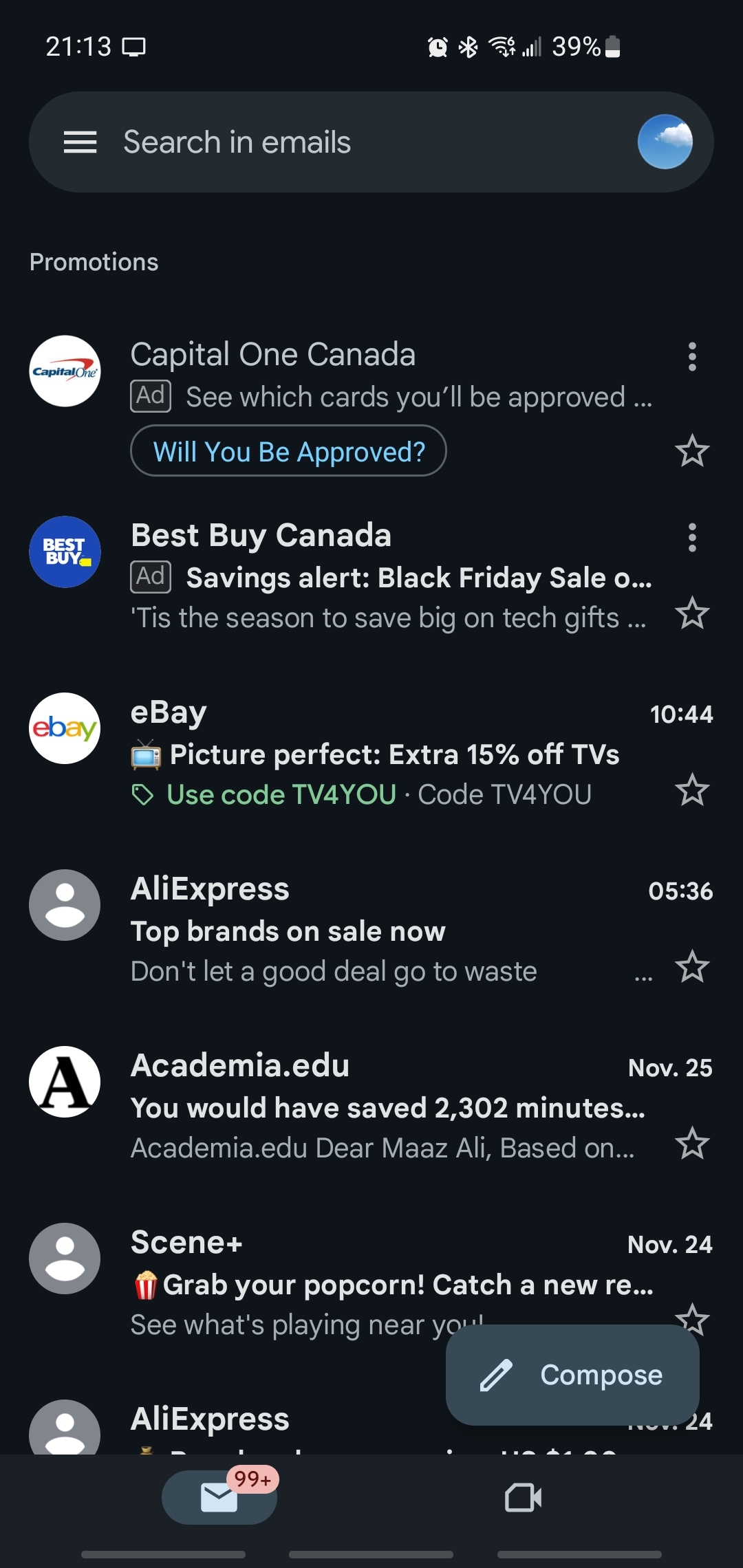this post was submitted on 27 Nov 2023
548 points (88.8% liked)
DeGoogle Yourself
9187 readers
13 users here now
A community for those that would like to get away from Google.
Here you may post anything related to DeGoogling, why we should do it or good software alternatives!
Rules
-
Be respectful even in disagreement
-
No advertising unless it is very relevent and justified. Do not do this excessively.
-
No low value posts / memes. We or you need to learn, or discuss something.
Related communities
[email protected] [email protected] [email protected] [email protected] [email protected] [email protected]
founded 5 years ago
MODERATORS
you are viewing a single comment's thread
view the rest of the comments
view the rest of the comments

If the service is free, you are the product. It's not complicated.
Pay for email, get no ads.
That statement just makes all of FOSS sound bad, and then people have even less of an idea what alternatives they could be using
Mailbox.org is 1€ / month for 2GB with first month free (with limitations), I don't think it's too much to ask for because Google has other ways of making money.
If you are self hosting, you are still paying in your time to set up, host and manage it.
And with FOSS, you are still the product. You are providing bug testing, there are no guarantees, and the idea is you contribute back by investigating bugs you find and submit them to the project.
The saying still has a very negative connotation, that's all I'm saying
So many paid products are buggy, get EOL with some small notice, or pad their bottom line selling user data.
At least with FOSS you have the option of picking up maintenance yourself if the corp drops that product. Support for mission critical infrastructure will only last as long as your support contract with closed software.
That's a huge risk.
Oh yeh. I know a few companies stung by this!
I disagree that the users are the product with FOSS is what I was getting at. Major contributions being done by individuals is a special case, with little regard for business continuity. There are obvious examples of people that do it, but the real value regardless of the quality of the individual contributors is the ability to fork your own if the contributions stop aligning with your business plan.
That ability to bring the software in house is a guarantee.
I'm just over here using mutt in my terminal and sipping my tea.
Try aerc! I sip my coffee even more happily nowadays :)
There's no such thing as a FOSS service. The software they use might be FOSS but a service cannot be.
There are free services that are genuinely free but they have nothing to do with FOSS.
Ok, so what do you call Bitwarden, matrix, openstreetmaps, Mastodon, or Lemmy?
OSM is database
The code? Free and Open Source Software.
An instance of the software running as a service? A service.
The official Bitwarden service has a free and a more featureful paid tier.
Element offers paid hosting as a service with a limited free tier.
OSM isn't software?
Mastodon and Lemmy are hosted and financed by individuals or organisations who usually choose to offer their service free of charge.
All of these are FOSS underneath but have very different costs. There is a difference between commercial for-profit services (BW, Element) and non-profit/public benefit ones (Lemmy, Mastodon) with the latter usually being free of charge.
There's very little difference between a commercial FOSS application as a service and a commercial non-free software as a service.
For example, you could also buy Slack as a service as opposed to Element. In the end it's a bill of $x/user/month. Nothing "free" about that other than the hosted software's source code.
The free in FOSS doesn't mean free of charge. All those paid services are still FOSS.
That doesn't change the fact that they're services, not software. These are fundamentally different things.
No, they're not mutually exclusive. These services are software.
The software is the "primary component" but a service is far more than just a piece of software.
It's providing infrastructure for the software to run in, maintaining said infrastructure, providing support to customers, billing/accounting, hiring people to do all of that etc. I'd even go as far as saying that the software being hosted ifself plays no major role in the service part.
Sure, but that's exactly what people mean when they say FOSS service.
Regardless, that's not the discussion we're having. The point is that those services are free of charge, and you're not the product. And that a big reason for that is that they are FOSS services.
Arguing about what people mean is futile. The point the other poster is making, and you've now agreed to be true, is that FOSS is software and a service is a service.
Most services powered by FOSS offer a free service as a taster for the paid service. The money made in the paid service tiers pay for the free tiers. Hopefully.
So, do we agree that saying that "if a service is free, you are the product" doesn't apply to FOSS services?
deleted